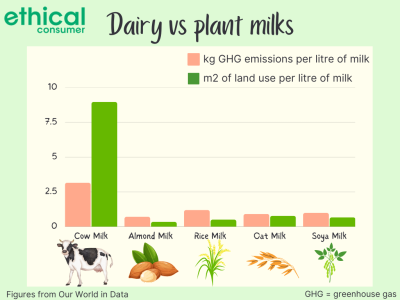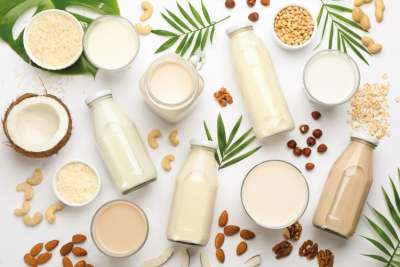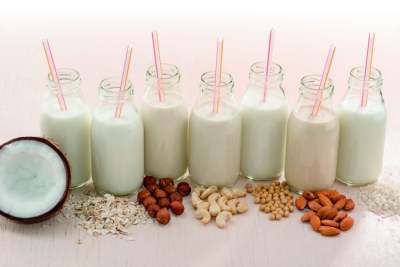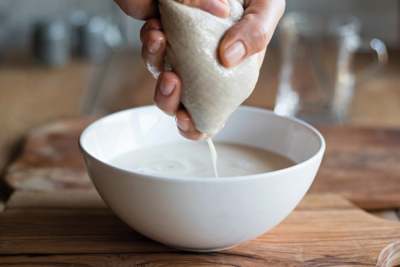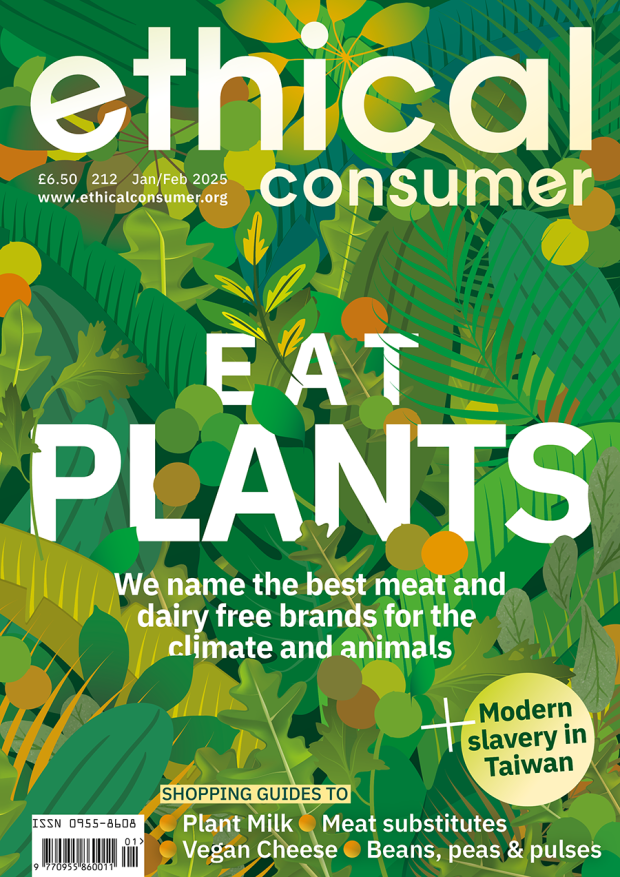What is the most environmentally friendly milk?
Whether you're reducing or eliminating dairy, are lactose intolerant or vegan, this guide will help you find which plant milk alternative is best for you and the environment.
In this guide we compare the carbon footprint of plant milk and dairy milk, look at what plant milks are made of, and if you can buy powdered vegan milk or vegan kefir.
We also look at who owns vegan plant based milk alternatives. Some are made by fully vegan companies, but some multinational dairy companies own vegan plant milk brands. If you're concerned about where your money ends up, you may want to check out the section on which brands are owned by dairy brands like Danone and Arla.
This may be of interest not just if you're vegan but also because, spoiler, dairy production has a massive impact on the environment.
Almost half the UK adult population now use plant milk. But it’s nowhere near reached its peak. The UK milk alternative market is predicted to grow by an astonishing 75% in the next five years.
So, the choices we make now could enable the most ethical brands in this market to grow and become household names, making more sustainable production in this sector commonplace.
Which plant milk brands are in the guide?
Some small brands have ridden the wave of plant milk popularity, but some small ethical brands (like Dug, Sharpham Park and Rebel Kitchen), have dropped out of the UK plant milk market.
We didn't rate Good Hemp or The Bridge this time as they are not very widely available. There are, however, many new additions that have started making plant milk, so we’ve added these in.
Along with small brands, perhaps using niche ingredients like hazelnuts, we've included the big or multinational brands like Alpro, Almond Breeze and Oatly.
We haven't included supermarkets in this guide but you can see how the various supermarkets score in our separate guide to supermarkets. Most supermarkets sell an own-brand plant milk along with some branded companies.
Why choose plant milk?
There are lots of reasons to choose plant milks, including concerns about animal welfare and concern about the planet.
If we want a sustainable planet for ourselves and future generations, a simple step is to switch dairy milk for plant milk.


